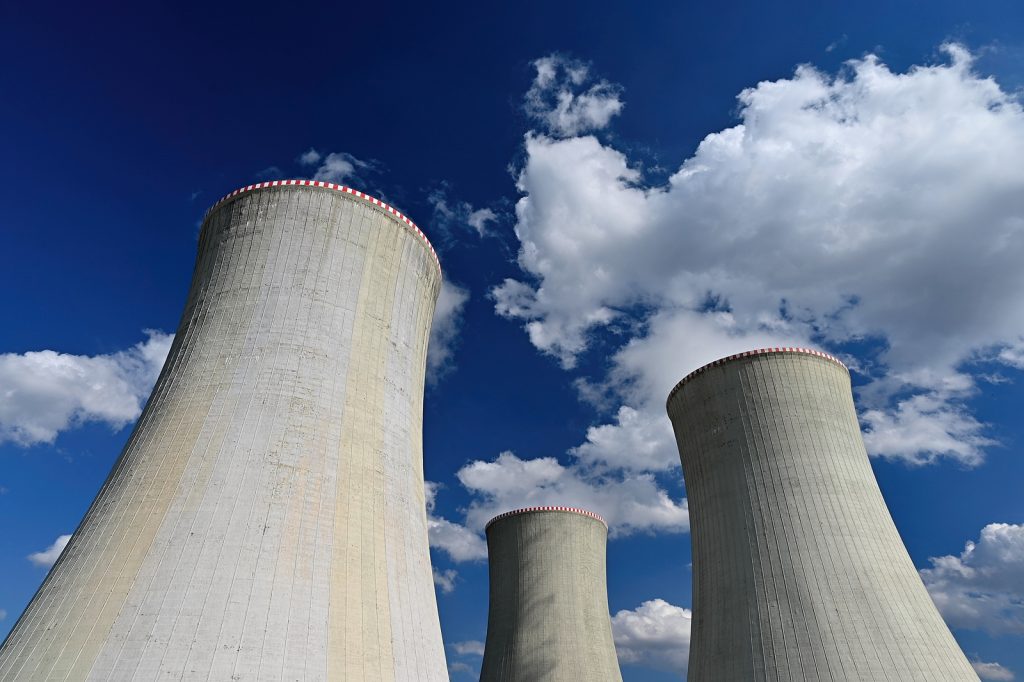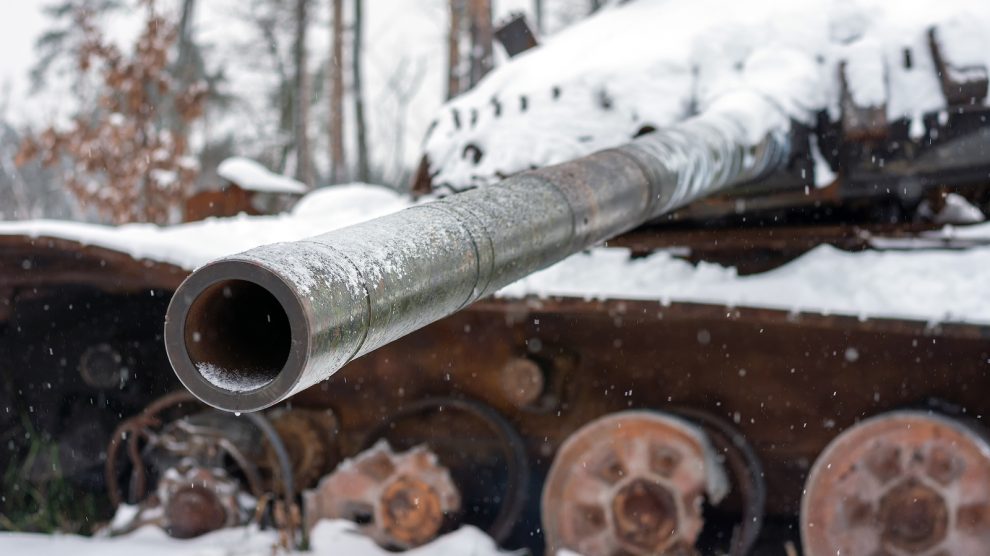Catch up quickly with the stories from Central and Eastern Europe that matter.
Russia’s war on Ukraine
Russia is moving towards a new stage of static and attritional fighting, a phase that could allow Moscow to rebuild its military power, Ukraine’s commander-in-chief warned this week.
The warning comes amid reports that North Korea has supplied Russia with two months’ worth of artillery shells.
In an article for the Economist published on Wednesday, General Valerii Zaluzhnyi said his army needed key new military capabilities and technological innovation to break out of the new phase of the war, now in its 21st month.
Using stark language, he described risks of prolonged, attritional fighting: “This will benefit Russia, allowing it to rebuild its military power, eventually threatening Ukraine’s armed forces and the state itself.”
His article comes almost five months into a major Ukrainian counteroffensive that has not made a serious breakthrough against heavily mined Russian defensive lines. Fighting is expected to slow as the weather worsens.
“Just like in the first world war we have reached the level of technology that puts us into a stalemate,” Zaluzhnyi added.
Russia bombarded 118 Ukrainian towns and villages in 24 hours on Tuesday and Wednesday, more than on any other day this year, according to Ukrainian Interior Minister Ihor Klymenko.
He said 10 of Ukraine’s 27 regions had come under attack and the onslaught had caused deaths and injuries. Many of the communities hit were near the front lines in the east and south.
Russia has for weeks trained much of its military firepower on Avdiivka, a strategically significant town in the eastern region of Donetsk.
“[Avdiivka] is being erased, shattered. There have been more than 40 massive shelling attacks against the territorial community in the past day,” said local leader Vitaliy Barabash.
He said two civilians had been killed and warned that Russia was building up to a third wave in its offensive. Ukraine says Russia has been pouring reinforcements into the area in a bid to encircle and capture the town.
Twenty attacks in the Avdiivka area alone were repelled on Tuesday, Ukraine’s armed forces general staff said.
The Italian prime minister, Giorgia Meloni, told a prank caller posing as an African leader there was “a lot of tiredness” over the war in Ukraine and that she had some ideas up her sleeve on how to “find a way out”.
Meloni’s office this week confirmed that she had been “misled” into the phone call—reportedly by two Russian comedians—that took place on September 18, “by an impostor who passed himself off as the president of the African Union Commission”.
According to reports in the Italian press, the callers were two Russian comedians, Vladimir Kuznetsov and Alexei Stolyarov, jointly known as Vovan and Lexus, one of whom presented himself to Meloni as “an African politician”.
Vovan and Lexus, who are strongly pro-Russia, have been accused of having links to Russian intelligence services, although there is no evidence to substantiate the allegation.

Dukovany Nuclear Power Plant, Czechia
Other news from the region
Three energy companies including US Westinghouse, France’s EdF and Korea’s KHNP, have submitted their final bids to build Czechia’s newest reactor at the Dukovany nuclear power station as the country strives to become more energy independent and wean itself of fossil fuels. State-controlled power company ČEZ said on Tuesday it would assess the bids for the multi-billion-dollar contract before sending its decision to the government for final approval of the winner.
After weeks of negotiations, Montenegro’s parliament on Tuesday appointed a new government, a coalition of pro-European and pro-Serb parties expected to lead the small Balkan country in its bid to join the European Union. The new government, led by economist Milojko Spajić of the Europe Now Movement, will have 19 ministries and five deputy-prime ministers. It will include the centre-right pro-European Democrats, the pro-Serbian Socialist People’s Party and five parties of the Albanian minority.
Serbia will hold a snap election next month after President Aleksandar Vučić this week dissolved parliament in the face of political pressure at home and from the European Union. The parliamentary vote and parallel local elections will be held on December 17, less than two years after the victory of the Serbian Progressive party at the polls. Vučić, who is in his second term as president, faces growing criticism from the political opposition and the greater public over back-to-back shootings in May that killed 18 people.
The European Union plans to help the countries of the Western Balkans pursue reforms needed for integration with the wealthy bloc with an investment of six billion euros, European Commission president, Ursula von der Leyen, said in Skopje on Monday. North Macedonia, Albania, Kosovo, Serbia, Montenegro and Bosnia and Herzegovina all need to seize the “window of opportunity” for the enlargement of the EU and work to align their standards to those in the bloc, von der Leyen said.
Moldova’s president, Maia Sandu, accused Russia on Wednesday of “buying” voters in this weekend’s local elections by funnelling money to pro-Moscow political parties. Sandu, who has denounced Russia’s invasion of Ukraine and accused Russia of trying to oust her in a coup, said Moscow had channelled the equivalent of nearly five million US dollars in two months in financing for “criminal groups”. These include a banned party led by fugitive businessman Ilan Shor.
Dutch-Belgian retailer Ahold Delhaize this week agreed to buy Romanian grocery chain Profi from private equity firm MidEuropa for 1.3 billion euros in a deal that will more than double the company’s operations in Romania. The acquisition of Romania’s biggest food retailer by number of stores will broaden Ahold’s reach to more rural parts of the country, as its existing 969-store Mega Image supermarket chain is mainly present in urban areas.
People younger than 18 have been barred from visiting this year’s World Press Photo exhibition in Budapest, after Hungary’s right-wing populist government determined that some of its photos violate a contentious law restricting LGBT content. A set of five photos by a Filipino photojournalist led a far-right Hungarian lawmaker to file a complaint with the country’s Culture Ministry, which found that they violate a Hungarian law which prohibits the display of LGBT content to minors.
The Medical University of Warsaw (WUM) this week suspended a Norwegian student who was pictured at a recent pro-Palestine march in the Polish capital holding a banner featuring the Israeli flag being thrown in a bin alongside the words “Keep the world clean”. “There is no place for any forms of hate speech or violence at the Medical University of Warsaw,” its rector, Zbigniew Gaciong, wrote in a statement issued to news website Onet.
Unlike many news and information platforms, Emerging Europe is free to read, and always will be. There is no paywall here. We are independent, not affiliated with nor representing any political party or business organisation. We want the very best for emerging Europe, nothing more, nothing less. Your support will help us continue to spread the word about this amazing region.
You can contribute here. Thank you.


